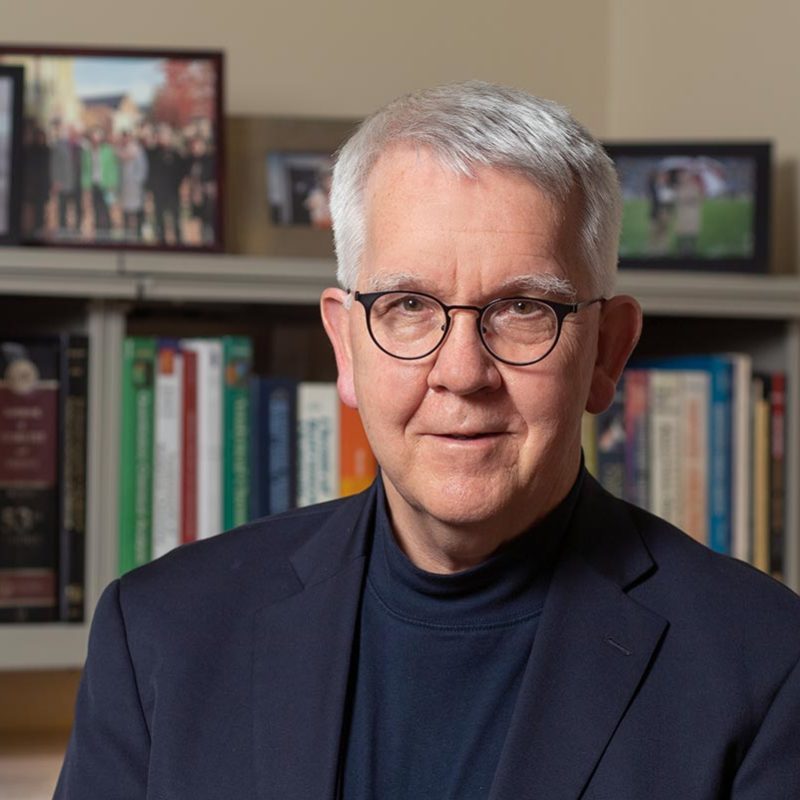Paul Bohn, Arthur J. Schmitt Professor of Chemical and Biomolecular Engineering and Professor of Chemistry and Biochemistry at the University of Notre Dame, has been named the 2022 recipient of the Charles N. Reilley Award from the Society of Electroanalytical Chemistry (SEAC).
The award is named after one of the most distinguished analytical chemists of the 20th century, whose signature research included seeking a basic understanding of measurements and detection schemes, recognizing that measuring molecules is at the heart of modern chemistry.
Electrochemistry is a fundamental process important in everything from respiration (allowing the human body to use oxygen while releasing carbon dioxide), to the development of batteries, and to “plating” objects with decorative metals like gold.
Bohn said he felt particularly honored to receive the award because it signaled acceptance by the community of electrochemical scientists, despite his not being trained in the field.
“I wandered into the field in the middle of my career,” Bohn said. “My perspective, however, allows us to bring together our expertise in nanoscience—being able to make small structures that can control molecules in new ways—and optical spectroscopy, the field in which I am trained, creating this whole new way to study electron transfer reactions.”
Combining traditional electrochemical techniques with spectroscopy means, “the things we do always gather a lot of attention, because we do experiments that no sensible electrochemist would ever do,” he joked.
After receiving his bachelor’s degree in chemistry at Notre Dame, Bohn earned his doctoral degree in chemistry from the University of Wisconsin. He worked for two years at Bell Laboratories before joining the faculty at the University of Illinois at Urbana-Champaign (UIUC), and he moved to Notre Dame in 2006.
In addition to his positions in the College of Science and the College of Engineering, he is the director of the Institute for Precision Health, where he and other researchers use electrochemistry, as well as other cutting-edge tools, to measure the tiniest samples of biomolecules for medical diagnostics and disease management.
Notre Dame has become a center of expertise and accomplishment for electrochemistry, Bohn said. There are several accomplished researchers on the faculty, including Prasant Kamat, the Rev. John A. Zahm Professor of Science, who studies energy conversion and solar voltaics; Jennifer Schaefer, assistant professor in chemical and biomolecular engineering, who studies battery processes; and Nosang Myung, the Bernard Keating-Crawford Professor of Engineering, an expert in electrochemical sensors, with more being recruited.
“Electrochemistry has been a delightful area to work in,” Bohn said.
In addition to the Reilley Award from SEAC, Bohn has received the American Chemical Society Award in Electrochemistry, was named one of the top 20 most influential analytical scientists worldwide in 2019, and received the Theophilus Redwood Award from the Royal Society of Chemistry as well as the Bomem-Michelson Award of the Coblentz Society. He is also a fellow of the Society for Applied Spectroscopy and the Royal Society of Chemistry. Bohn has authored or co-authored nearly 300 papers, and holds nine patents with more pending.
— Deanna Csomo McCool, College of Science
